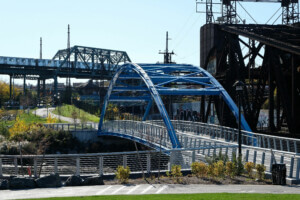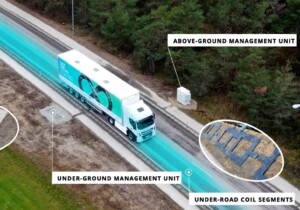A dire water crisis is continuing to unfold in Jackson, the capital and most populous city in Mississippi, after a recent bout of torrential rainfall and subsequent flooding brought its already-frail water system, including its main water treatment plant, to the brink of failure. As a result, 150,000-some residents will be without reliable running water for drinking, cooking, and other basic needs for the foreseeable future as officials scramble to restore normal water pressure levels and bring the city-run O.B. Curtis Water Treatment Plant, which treats more than 50 million gallons per day, fully back online.
Even before floodwaters from the Pearl River breached the aging facility this past weekend and tipped a slow-rolling infrastructural nightmare well over the edge, the city had been under a boil-water notice (not a rare occurrence in the least) for a month due to high levels of cloudiness in the water supply. As reported by Reuters, the motors powering the facility’s primary pumps had already recently failed, and the O.B. Curtis Water Treatment plant—one of two in the city—was operating on less powerful backup pumps when the floodwater-induced failure occurred on Monday. A pump at the other facility, J.H. Fewell Water Treatment Plant, was also reportedly experiencing issues, hindering it from increasing output. (In terms of its larger impact, the flooding was less severe than initially feared.) In late 2021, a severe ice storm also left many Jackson residents without running water for weeks on end.
Jackson Mayor Chokwe Antar Lumumba laid blame on understaffing at the water treatment plants and a “set of accumulated problems based on deferred maintenance that has not taken place over decades.”
“It was not a matter of if our system would fail, but a matter of when,” the BBC reported Lumumba as saying.
Lumumba declared a water system emergency on Monday while Mississippi Governor Tate Reeves requested an emergency federal declaration for the water crisis the following day. The White House swiftly approved the emergency declaration, setting into action federal assistance to supplement state-based efforts. Lumumba has also spoken with both President Joe Biden and Vice President Kamala Harris to iron out response efforts, including on-the-ground aid from the Federal Emergency Management Agency, the Environmental Protection Agency and the Army Corps of Engineers.
Meanwhile, schools, businesses, and other services across the city have been shuttered indefinitely while bottled water and non-potable water for toilet flushing is trucked in and distributed to residents, which Reeves referred to as a “massively complex logistical task.”
“Until it is fixed, it means we do not have reliable running water at scale,” Reeves said during a news conference on Monday. “It means the city cannot produce enough water to fight fires, to reliably flush toilets, and to meet other critical needs.”
Congressman Bennie G. Thompson, whose district includes most of Jackson and the Mississippi Delta, pledged to work alongside the White House on relief efforts and stressed the Jackson residents “need all hands on deck to resolve this issue.”
The crisis has not only underscored a rift between Lumumba, a Democrat first elected in 2017, and Mississippi’s Republican-led government (the mayor was notably not invited to Reeves’s Monday evening news conference on the unfolding situation), but also further brought light to the disinvestment and infrastructural neglect that has plagued Jackson, a predominately Black city, for years.
Famed for its role in the Civil Rights movement and positioned just outside the southern border of the Mississippi Delta, Jackson has long struggled with poverty, crime, and a fast-shrinking population. The city government has done all in its power to make headway but lacks the resources it needs to fully take on myriad challenges. Last year, the Republican state legislature thwarted two separate bills that sought funding to repair the city’s outdated, failure-prone water infrastructure. (A full modernization of the system is estimated to cost at least $1 billion.) In 2020, bipartisan legislation was introduced that would have helped Jackson residents pay overdue water bills and, in turn, help to boost city coffers. As NPR pointed out, the legislation was vetoed by Reeves.
Unrelated to Jackson’s infrastructural woes but part of the same troubling trend, last month the state returned millions of dollars in federal rent assistance to the U.S. Treasury that would have helped countless low-income and elderly Jackson residents. Reeves justified his discontinuation of the Rental Assistance for Mississippians Program by claiming that “the experimental socialist programs being pushed from Washington are not caring. They are cruel.” The governor, however, expressed his gratitude when Biden approved his plea for federal emergency funding earlier this week.
As state senator David Blount pointed out to the New York Times, Mississippi is currently in relatively healthy financial standing thanks in part to federal stimulus funds; per Blount, the state has $2.5 billion in the bank, some of which could be used to chip away at pressing infrastructural needs in its capital city. The state government, however, has historically not demonstrated an appetite to do so.
“This problem has been building for a decade, and it’s past time to fix it,” Blount relayed to the Times. “The basic question is, can Democrats and Republicans, Black folks and white folks, come together and find a solution and fix it?”
Visit the Community Foundation For Mississippi to learn more about how you can help those impacted by the Jackson water crisis.











